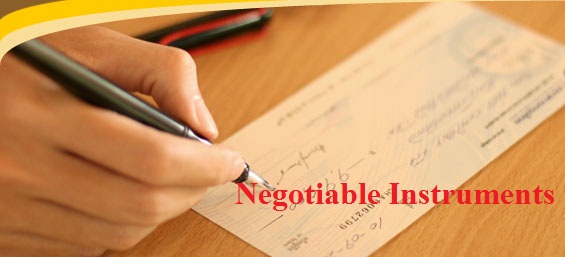IMPORTANT BANKING AWARENESS QUESTIONS SET -11
Want to Become a Bank, Central / State Govt Officer in 2020?
Join the Most awarded Coaching Institute & Get your Dream Job


Now Prepare for Bank, SSC Exams from Home. Join Online Coure @ lowest fee
Lifetime validity Bank Exam Coaching | Bank PO / Clerk Coaching | Bank SO Exam Coaching | All-in-One SSC Exam Coaching | RRB Railway Exam Coaching | TNPSC Exam Coaching | KPSC Exam Coaching
IMPORTANT BANKING AWARENESS QUESTIONS SET -11
Banking awareness plays a vital role in the General knowledge section.So, start preparing for your mains examination and score more marks by practicing these quizzes.
Q.1) ________ is a certain percentage of bank deposits which banks are required to keep with RBI in the form of reserves or balances.
a) Bank rate
b) Marginal standing facility rate
c) Cash Reserve Ratio
d) Repo Rate
e) Reverse repo rate
Q.2) The ratio of the liquid assets to time and demand liabilities is termed as _____
a) Bank rate
b) Reverse Repo Rate
c) Statutory Liquidity Ratio
d) Cash reserve ratio
e) Repo Rate
Q.3) A Bank Rate is also Known as ______
a) Reverse Repo rate
b) Repo Rate
c) Liquidity Rate
d) Simple Rate
e) Discount Rate
Q.4) _______ is the rate of interest charged by the RBI for providing funds or loans to the banking system.
a) Cash Reverse rate
b) Bank rate
c) Discount Rate
d) Reverse Repo Rate
e) Both b and c
Q.5) ______ is the rate at which RBI lends to its clients generally against government securities.
a) Statutory Liquidity Ratio
b) Repo rate
c) Reverse repo rate
d) Bank rate
e) Cash reserve ratio
Q.6) The______ in the Repo rate will increase the cost of borrowing and lending of the banks which will discourage the public to borrow money and will encourage them to deposit.
a) Increase
b) flow
c) Stability
d) Decrease
e) Both b and d
Q.7) ________ in Repo rate helps the commercial banks to get money at a cheaper rate and increase in Repo rate discourages the commercial banks to get money as the rate increases and becomes expensive. Reverse Repo rate is the rate at which RBI borrows money from the commercial banks.
a) rise
b) Stability
c) Reduction
d) Increase
e) Both a and d
Q.8) _______ is the rate at which RBI borrows money from the commercial banks.
a) Discount Rate
b) Marginal standing facility rate
c) Cash reserve ratio
d) Bank rate
e) Reverse repo rate
Q.9) An asset that can be converted into cash in a short time, with little or no loss in value is known as ______
a) Simple assets
b) Solid assets
c) Marginal assets
d) Quality assets
e) Liquid assets
Q.10) Treasury Bills is the government bond or debt securities with a maturity of less than ____
a) 6 months
b) 8 months
c) One Year
d) Two year
e) Three Years
Q.11) ______ are the cheques which are withdrawn for the payee(the cheque withdrawn for whose person).
a) Anti Dated Cheque
b) Stale Cheque
c) Order Cheque
d) Bearer Cheque
e) Crossed Cheque
Q.12) ________ are the cheques which withdrawn to the cheque’s owner.
a) Order Cheque
b) Crossed Cheque
c) Anti Dated Cheque
d) Bearer cheques
e) Stale Cheque
Q.13) The cheques on which two parallel line made on the upper part of the cheque are called _____
a) Stale cheque
b) Crossed cheque
c) Order cheque
d) Bearer cheque
e) Anti Dated cheque
Q.14) The cheque issued by a holder does not get withdrawn from the bank till three months, then that type of cheque are called _____
a) Anti Dated Cheque
b) Bearer cheques
c) Crossed cheque
d) Stale Cheque
e) Order Cheque
Q.15) The cheque issue for the upcoming withdrawn date but it withdraw before the date printed on the cheque, then that type of cheques are called _____
a) Stale cheques
b) Bearer cheques
c) Post dated cheques
d) Pre-dated cheques
e) Anti dated cheques
Q.16) Small Industries Development Bank of India (SIDBI) is headquartered at ______
a) Chennai
b) Lucknow
c) Manipal
d) Mumbai
e) Kolkata
Q.17) EXIM Bank is headquarted at _______
a) Chennai
b) Mumbai
c) New Delhi
d) Kolkata
e) Bengaluru
Q.18) National Housing Bank is headquartered at _____
a) Mumbai
b) Chennai
c) Bengaluru
d) Kolkata
e) New Delhi
Q.19) IFCI is an Indian government owned development bank to cater to the long-term finance needs the industrial sector.What is the abbreviation of IFCI?
a) Industrial Function Corporation of India
b) Investment Function Corporation of India
c) Investment Finance Corporation of India
d) Industrial Finance Corporation of India
e) Industrial Finance Co-ordination of India
Q.20) ______ refers to funds deposited by a Non-Resident Indian with a financial institution authorized by the Reserve Bank of India to provide such services.
a) NRF Account
b) NRO Account
c) NRA Account
d) NRI Account
e) NRE Account
Answer Key
1) c) Cash Reserve Ratio
2) c) Statutory Liquidity Ratio
3) e) Discount Rate
4) e) Both b and c
5) b) Repo rate
6) a) Increase
7) c) Reduction
8) e) Reverse Repo rate
9) e) Liquid assets
10) c) One Year
11) c) Order Cheque
12) d) Bearer cheques
13) b) Crossed cheque
14) d) Stale Cheque
15) e) Anti dated cheques
16) b) Lucknow
17) b) Mumbai
18) e) New Delhi
19) d) Industrial Finance Corporation of India
20) d) NRI Account
Aspirants can use the below attached video to gain more knowledge regarding banking awareness section and can also use the below attached links to know more about the other important informations.
Other Important Links
IMPORTANT BANKING AWARENESS – YOJANAS & SCHEMES (2018) QUESTIONS : SET 10
SSC CGL 2017 Tier 3 Admit Card Released : Download Now



